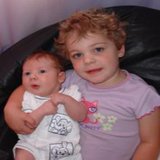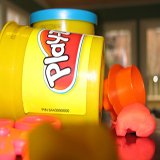How to Enhance Child Speech Development
Now, I hear you asking: "So what can I do to enhance my child speech development?" Recent advances in brain research give us some answers. For example, from birth on, an infants brain requires almost nonstop stimulation.
And there is mounting evidence that what you say to your baby and the way you say it will give a boost to her speech and language development.
"The key is language exposure: a lot of it, and in as many diverse situations as possible.
A Series of infant experiments that have been conducted by psychologists found that babies as young as 8 ½ months old seemed to pay attention to familiar words, and to know where words begin and end.
Child Speech Development Tips for Parents
The answer is far less complicated than infant language development research might suggest. Babies pay attention to the form of speech known as parentheses. This is the natural sing-songy way adults tend to address babies and young children. There is nothing like live interaction, eye contact, parents facial expressions and gestures to make speech sound lively, comforting, and worth being paid attention to.
Here are five child speech development tips from experts to help you guide your baby language development.
- Practice live interaction. Hold, cuddle, play and talk directly to your infant. During the first three months, when you speak to your baby try to find a spot away from other distracting noises and activities.
- Repeat words. To teach words, repeat them again and again, using them alone and in sentences. Reinforce the association between the word sounds and objects. For example, if you say the word "dog" and point to your family pet, your child will begin to make the association between the word and the animal.
- Speak in parentheses. Use a variety of speech styles to keep your infant alert and interested. Create a sharp pitch contrast between vowels and emphasize the difference between stressed and unstressed syllables. For example, BO-ttle.
- Read every day. Read board and cloth books, and talk about the colorful pictures and simple words. Beginning at about 4 months of age, many infants show a focused interest in the pictures in a book.
- Sing songs with your baby. Have fun together. Make up songs about daily events and sing childrens songs or nursery rhymes.
The process of language learning is pre-wired, and infants are genetically equipped to learn to speak and understand language.
What can parents do to aid the process?
Provide a rich environment for word acquisition, then relax and allow their child to develop normally.
Find It!
Can't remember where you read something specific? Just type in your search term in the box below and your specific topic will be returned to you instantly.









